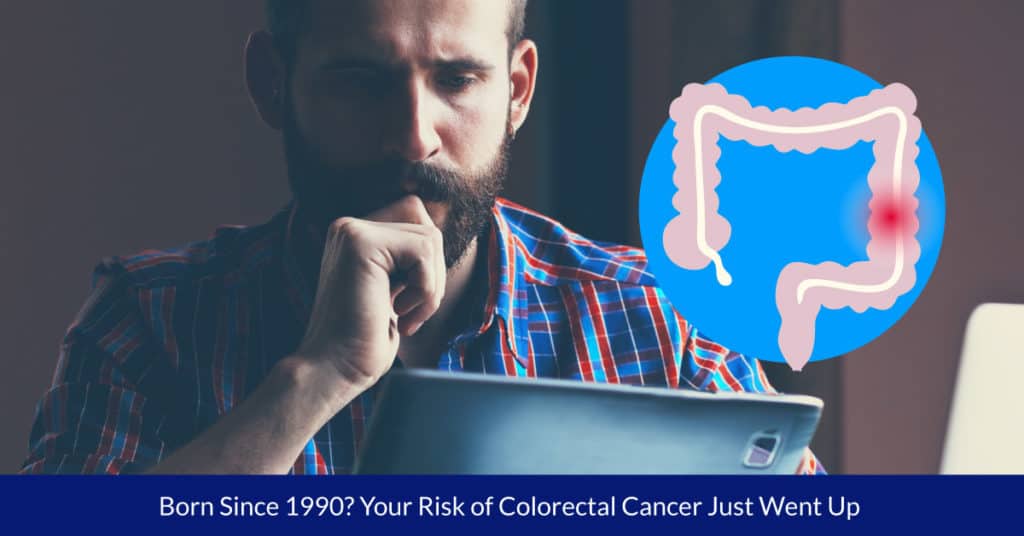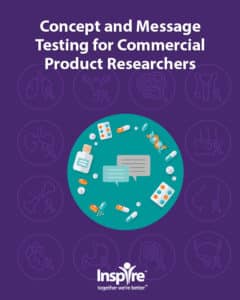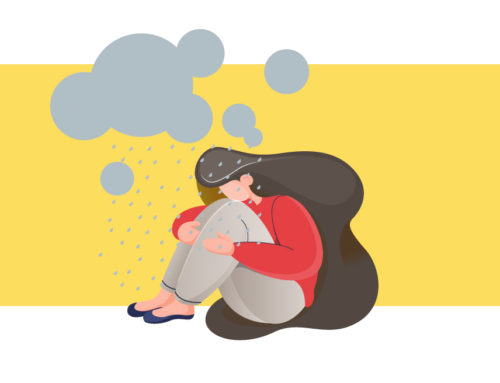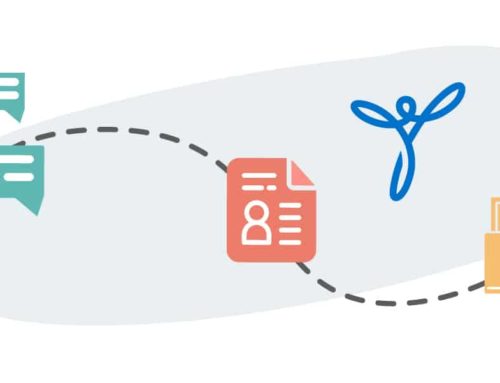Born Since 1990? Your Risk of Colorectal Cancer Just Went Up

The age at which people at average risk of colon cancer should start being screened used to be 50.2 In May 2021, the U.S. Preventive Services Task Force lowered it to 45. It’s been lowered because the age at which people are being diagnosed with colorectal cancer (CRC) is going down even as the survival rate of people with CRC over 50 is improving.1
My son, he’s 28, was diagnosed in September 2019 with stage 4 rectal cancer, the tumor was on the border to the colon so they are treating it as colon. It has spread to 22 of 37 lymph notes …
Actor Chadwick Boseman’s death from CRC at age 43 last year brought this awareness to millions of people: CRC is not just a concern of those over 50. According to the American Cancer Society, since 1994, there has been a 51% increase in colorectal cancer among those under age 50.2 Adults born around 1990 have two times the risk of colon cancer and four times the risk of rectal cancer than people born seventy years ago.3,4 The disease in younger people is called Early Age Onset colorectal cancer (EAO CRC).
Husband diagnosed with stage iv at age of 38. Our children will have their first colonoscopies in their 20’s.
The decline in CRC deaths among older adults is likely due to both a change in lifestyle factors and increased testing.3 The colorectal cancer death rate dropped by 55% from 1970 to 2018, due to changes in risk factors (including fewer people smoking);5 increased rates of colorectal cancer screening; and better treatments.6 The cause of the marked increase in EAO CRC is not known, but some factors that raise the risk of colorectal cancer in older adults include obesity, physical inactivity, and smoking.7,8 Because of the link to lifestyle factors and the benefits of screening, as many as 60% of colorectal cancers are considered to be preventable.9
I had a [brand name] test done and the result came back positive. I have no other problems going on. Normal bms no blood, no straining. I am scheduling a colonoscopy.
My only symptom was bleeding, and I was already Stage IV at diagnosis. That’s why screening …is so important. You don’t have to have symptoms for a polyp to turn into cancer.
Early screening can also affect survivability in EAO CRC. An analysis published in June by JAMA found that the 10-year survival rate for younger people was worse than the rate for the group aged just a few years older, 51-55 (53.6% vs. 54.3%), until they adjusted for stage. The authors found a survival benefit for EAO CRC survivors who had been diagnosed at stage I or II. They concluded, “These findings… reinforce the importance of early CRC detection in the younger population.”10
Genetics plays some influence in who gets CRC. Certain genetic conditions, including Lynch syndrome, increase the risk of developing colorectal cancer before 50, but only 10% to 20% of early-onset colorectal cancers are caused by inherited factors.11 The CDC says that a sign of a genetic predisposing factor may be having a family history of CRC. In this case, the first step is to collect the family history of CRC and share it with a doctor.12
Inspire’s Partner, Fight Colorectal Cancer
In addition to its ongoing advocacy and research activities, Inspire’s partner, Fight Colorectal Cancer, held a virtual Rally on Research in June 2021, its third international symposium on EAO CRC. The Rally brought together more than 500 thought leaders, researchers, clinicians, and patient advocates from 35 countries to discuss the impacts of the rising rates of EAO CRC and what the advocacy and medical community can do to change this trend. As Fight CRC says of the Rally, “We felt it was imperative to bridge the advocacy and scientific communities and create an engaging space to listen and learn from one another.”13
This viewpoint drives Inspire as a company. Patients, caregivers, and advocacy groups are experts by experience in what it’s like to be living with a disease. They come together on Inspire. Inspire’s members gathering to discuss CRC is almost 59,000 people who have made over 64,000 posts, and they are fighting the fight. As one member said:
I had stage 3 in 2003…I never thought of survival rates and pretty much ignored them. I think only of the day to day —living the best you can.
Inspire offers a trusted community to patients and caregivers. Our goal with this blog, this website and our content is to provide the life science industry access to the true, authentic patient voice. In so doing, we support faithful operationalization of patient-centricity. Take a look at our case studies, eBooks and news outlet coverage.
References
1 https://www.uchicagomedicine.org/forefront/cancer-articles/new-guidelines-lower-colorectal-screening-age-from-50-to-45
2 https://fightcolorectalcancer.org/blog/chadwick-boseman/
3 https://acsjournals.onlinelibrary.wiley.com/doi/full/10.3322/caac.21457
4 http://pressroom.cancer.org/releases?item=770
5 https://www.cdc.gov/tobacco/data_statistics/fact_sheets/adult_data/cig_smoking/index.htm
6 https://fightcolorectalcancer.org/about-colorectal-cancer/general-information/facts-stats/
7 https://www.keckmedicine.org/why-is-colorectal-cancer-on-the-rise-for-younger-people/
8 https://www.cancer.gov/news-events/cancer-currents-blog/2020/colorectal-cancer-rising-younger-adults
9 https://acsjournals.onlinelibrary.wiley.com/doi/10.3322/caac.21601
10 https://jamanetwork.com/journals/jamanetworkopen/fullarticle/2781172
11 https://utswmed.org/conditions-treatments/genetics-and-hereditary-cancers/guide-hereditary-cancer-health-pros/hereditary-colon-cancer-guide-health-pros/
12 https://www.cdc.gov/genomics/disease/colorectal_cancer/lynch.htm
13 https://fightcolorectalcancer.org/blog/recap-rally-on-research-eao-crc/






